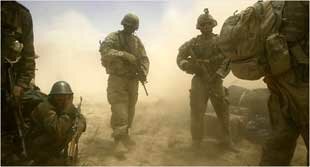You read it here first: There is a 50-50 chance that President Obama will not get his party’s nomination in 2012, much less be re-elected, so grave have been his policy errors. Presidents rarely escape the consequences of serious misjudgments.
Andrew Johnson came within a vote of being removed from office after underestimating the power of the radical reconstructionists. Harry Truman, after firing General MacArthur and trying to seize the steel mills, decided not to run for re-election when his popularity fell to 22 percent.
Lyndon Johnson made the same decision after it became clear his policies in Vietnam were losing support. Richard Nixon, who overwhelmingly won re-election in 1972, was forced to resign less than two years later because he bungled his response to a third-rate burglary.
Jerry Ford never got a full term because he pardoned Nixon. Jimmy Carter weathered a primary challenge by Ted Kennedy but still lost re-election because few Americans thought he had the cojones to tackle the Soviets, the mullahs, and the misery index. Bill Clinton was impeached because in a priapic fever he choked on the definition of "is." George W. Bush destroyed his presidency in a fit of pique against Saddam Hussein.
Obama’s mistakes already make these precedential misjudgments look like peccadilloes. By his own estimate, budget deficits in his first term will exceed those of all of his predecessors combined. His stimulus bill, which increasingly resembles a regurgitated cud of political pork, is failing to stimulate. Unemployment continues to rise. The value of the dollar is propped up only by China’s desire not to give itself the shaft. His health care plan scares a majority of the voters, and his progressive abandonment of the public option enrages a majority of his left-leaning base.
Yep, a 50-50 chance Obama will be a lame duck after the 2010 mid-terms sounds about right. But make that a 90-10 chance if Obama, on top of all that, gets Afghanistan wrong and, like Lyndon Johnson, steps into a quagmire.
In May, Obama endorsed the Pentagon’s decision to replace its commander in Afghanistan, General David McKiernan, with General Stanley McChrystal — the first time a four-star commander in a combat theater has been fired since Truman fired MacArthur.
McChrystal has told Obama that the mission is in danger of failure without more troops. His boss, David Petraeus of Iraq surge fame, has gotten behind McChrystal’s demand. The pressure on Obama to go along with the recommendations of his military commanders is undoubtedly intense.
He should resist that pressure — not for the political reason of getting his party’s nomination and getting re-elected but for the good of the country.
McChrystal and Petraeus cannot be faulted. They are just doing their job in the full light, doubtlessly, of the most up-to-date military doctrine. Their professionalism is an essential element of the give and take of our open decision making process which, in the time-honored national tradition, postulates firm civilian control over those armed professionals.
It is the job of our elected politicians and the civilian officials they appoint to assess the recommendations of military professionals against the demands and probabilities of budget, politics, culture, and history — in short, the overarching national interest.
Afghanistan is remote and rugged. It has a primitive agricultural economy, a mainstay of which is the cultivation of poppies for the production of heroin and morphine. It is ethnically divided among Pashtuns, Tajiks, Hazaras, and other groups, and their tribal leaders are often warlords. Virtually all adult Afghan males carry and know how to use firearms. The government, now and far back into the mists of the past, is irretrievably corrupt. There are 28 million Afghans, and the vast majority of them despise the foreigners who come into their country in vain attempts to order their affairs.
The British Empire suffered one of its worst military defeats in 19th-century Afghanistan. The Soviets left Afghanistan with their tails between their legs.
A historian would expect Americans, perhaps more than any other nation, to understand how it is possible for a small, relatively poor country to inflict defeat on a world-class imperial power. That is precisely what we did to the British Empire at the apex of its military might and political prestige. That is what Vietnam did to us at the height of our military might and political prestige.
There is a common factor in all these historical events. The Brits and the Russians were fighting on Afghan soil. The Brits were fighting on American soil. We were fighting on Vietnamese soil. There is no magic or strange power in dirt. The force to be reckoned with in each of these cases is the strong attachment of the inhabitants to their own national dirt. In all history, there is no more hated warrior, no soldier more worthy of a violent, bloody end, than the one who is perceived as an invader or an occupier.
It makes absolutely no difference how those invading, occupying soldiers perceive themselves. Sure, it will make them feel good if they can honestly tell themselves that they are fighting a global war on terrorism, or exporting democracy, or building a nation. But feeling good about yourself and your mission will not make much difference if an AK-47 round sneaks through your body armor’s arm hole or just under the edge of your helmet.
Source: Frank Creel - Antiwar
October, 03, 09
MSN - - - Wikipedia - Hamsayeh.Net



